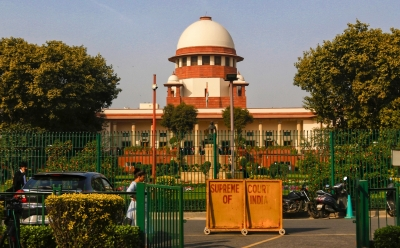SC dismisses plea challenging designation of ‘senior’ advocates
The Supreme Court on Monday dismissed a plea challenging designation of senior advocates under the Advocates Act, 1961.
A bench of Justices S.K. Kaul and Sudhanshu Dhulia said the system of designation of advocates as ‘senior’ cannot be said to be untenable or be classified as unreasonable under Article 14 of the Constitution.
“We dismiss the petition with no orders as to cost,” said the bench, while deprecating the practice of filing of such petition.
It said the plea has been filed under a “misadventure” by the petitioner-in-person, Mathew J. Nedumpara.
On October 4, the Supreme Court had reserved its verdict after hearing the contentions raised by Nedumpara, a Mumbai-based lawyer.
His petition alleged that senior designation has created a class of advocates with special rights and “the same has been seen as reserved only for the kith and kin of judges and senior advocates, politicians, ministers, etc.”
The plea said that the designation of advocates as senior advocates under Sections 16 and 23(5) of the Advocates Act, 1961 as well as under the Supreme Court Rules, 2013 creates a “special class of advocates with special rights, privileges and status not available to ordinary advocates” and is unconstitutional being violative of the mandate of equality under Article 14 and the right to practice any profession under Article 19, as well as the right to life under Article 21″.
The petitioner assailed the apex court’s judgement in 2017 Indira Jaising’s case where guidelines were laid down for conferring the senior advocates designation.
In that judgment, the Supreme Court had said that a five-member permanent committee, headed by Chief Justice of India, should be set up for short-listing candidates for conferring senior designation. Similar guidelines were issued for 24 high courts across the country.
Prior to the 2017 judgment, a decision on the designation of lawyers as senior advocates was taken by adopting a secret voting among the judges and by the rule of majority.

